Indian roots, global standing: meet the winners of the Lexus Design Awards India 2019
The second annual Lexus Design Awards India for Indian designers highlight aesthetics along with business and social impact. Meet the 13 winners from 81 finalists.
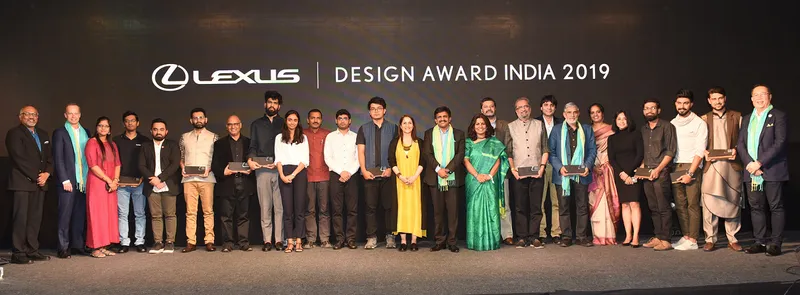
PhotoSparks is a weekly feature from YourStory, with photographs that celebrate the spirit of creativity and innovation. In the earlier 290 posts, we featured an art festival, cartoon gallery. world music festival, telecom expo, millets fair, climate change expo, wildlife conference, startup festival, Diwali rangoli, and jazz festival.
The 13th annual Pune Design Festival (PDF), organised by the Association of Designers of India (ADI), highlighted foundations and frontiers of collaborative design. See YourStory’s coverage of design takeaways, design purpose, entrepreneurship opportunities, and the Design Expo at PDF 2019. Another highlight at the event was the second Lexus Design Awards India (LDAI), for which ADI was the knowledge partner.
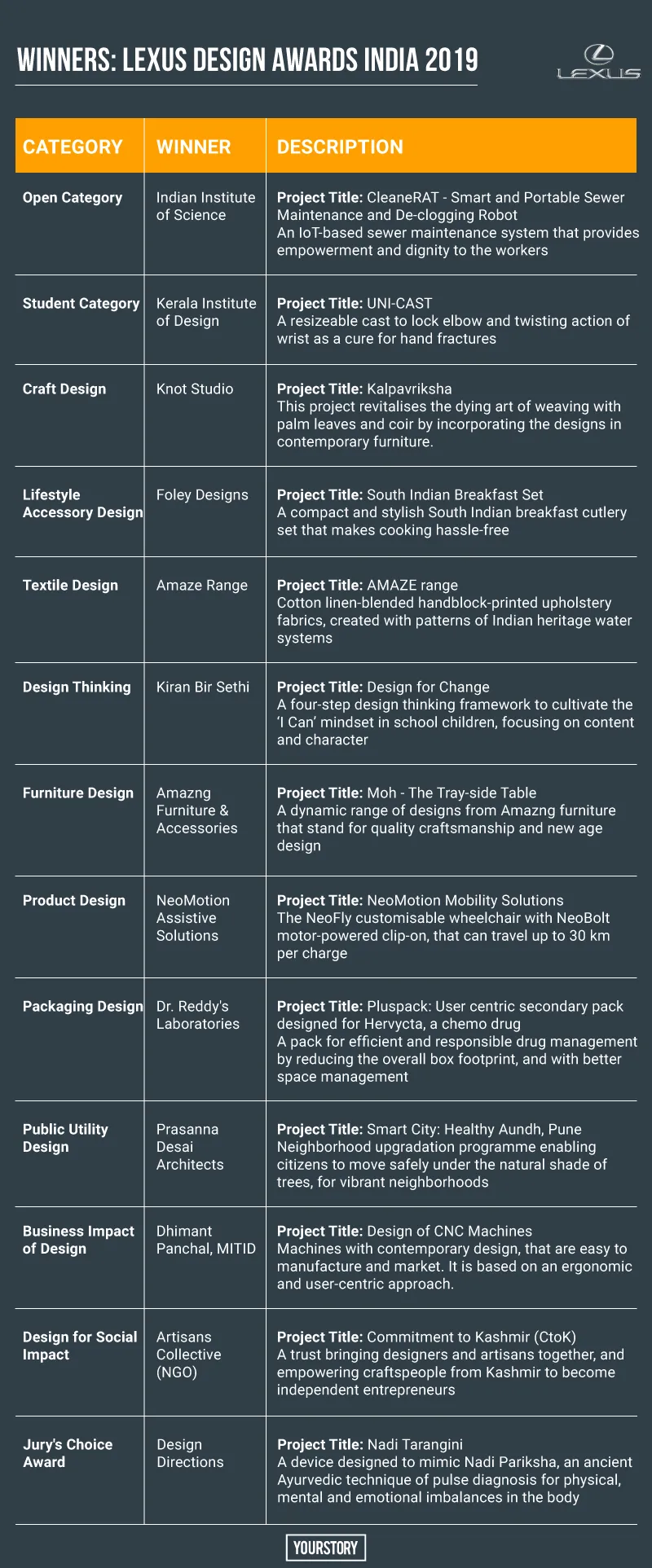
Innovation + Design
Innovative designing goes beyond aesthetics and calls for courage to stand out and challenge convention, according to David Nordstrom, VP Asia-Pacific, Lexus. At the awards ceremony, he explained the ‘L-finesse’ philosophy of Lexus as a mix between ‘leading edge’ and ‘finesse.’
This involves combining cutting-edge technology with style and elegance, showing contradictions and harmony at the same time. Outer beauty is combined with inner resonance, leading to radical yet delicate designs. “It elevates car designs to the level of art,” David evocatively explained.
He cited the work of Toyota design chief Tokuo Fukuichi: “From now on I don’t want to create nice designs, I want to create impressive designs, ones that remain in minds.” Some of Lexus’ new product lines include luxury yachts; the company also has experience zones called Intersect in Tokyo, New York and Dubai.
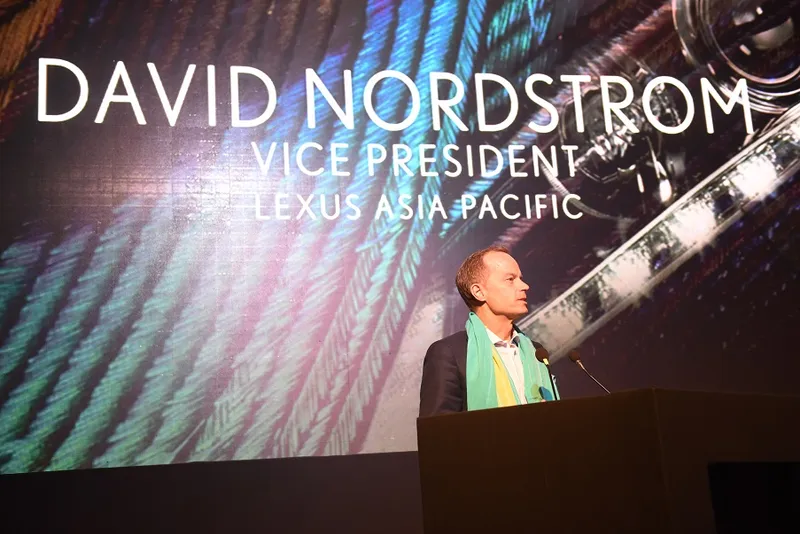
The awards ceremony also featured a presentation by winners of the Lexus Design Award 2018 People‘s Choice: Aesthetid's Honest Egg, by Malaysian designers Paul Yong Rit Fui and Jaihar Jailani Bin Ismail. It involves use of bio-ink to reflect when an egg has reached its recommended consumption date. The ink can change its colour in response to a pre-calibrated time period.
The two speakers shared the definition of 'honest design' by German designer Dieter Rams: it does not make a product appear more innovative, powerful or valuable than it really is, and does not attempt to manipulate the consumer with promises that cannot be kept.
Dieter has described 10 principles of good designs; product designs should be aesthetic, innovative, unobtrusive, honest, long-lasting, environmentally friendly, thorough down to the last detail, involve as little design as possible, and make the product useful and understandable. See also my book review of Intuitive Design by Everett McKay.
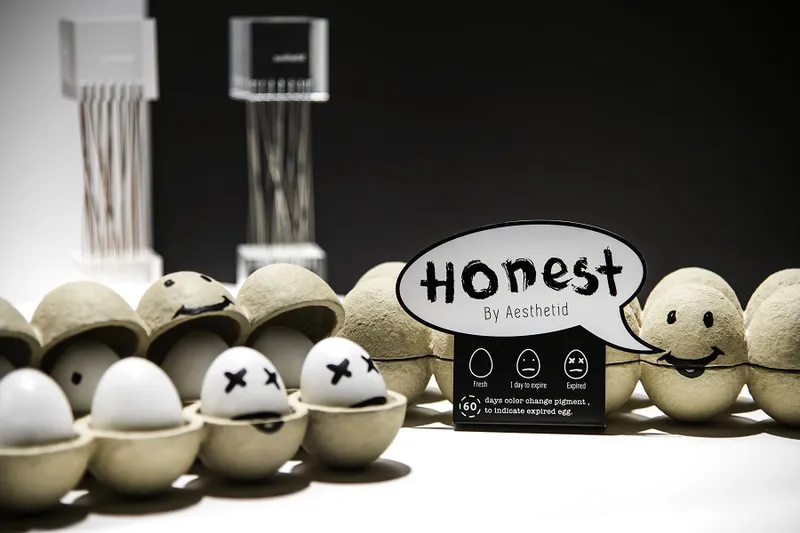
Designs for a Better Tomorrow
Lexus India handed out awards across 12 categories, from a pool of 81 finalists and 557 submissions. The call for entries was announced in September 2018. Winning entries from 2018 awards were exhibited at the Design Expo (see our photo essay here). The jury was chaired by ADI President Ashish Deshpande. “We chose designs that are rooted in India and also have global standing,” he explained.
The theme of LDAI 2019 was ‘Design for a Better Tomorrow,’ and the awards were open to emerging designers, both professional and students. Designs can surface the right solutions for the various problems faced by society, and the awards for excellence in innovation and craftsmanship were designed to reflect Lexus principles of ‘anticipate, innovate, captivate.’
Here are the finalists of LDAI 2019; some of the entries were submitted in multiple categories as well. The winning entries are listed in Table 1 above, and the photographs below show winners along with jurors. In future columns in our d-Zen section (‘design Zen’), we will examine the design and innovation stories of these categories in more detail.
1. Product Design
This includes all products and product systems that are designed for use by end consumers and intended for mass manufacture, such as consumer appliances and office products. The finalists were Nadi Tarangini (medical equipment for Ayurvedic Doctors, by Design Directions), Mettis (toe rings with fitness trackers, by Titan), NeoMotion wheelchair (by NeoMotion Assistive Solutions), Wide Format Eco-Solvent Printer (by Jagana Design Lab), BluSnap (ventilation system for helmets, by Foley Designs), Low-cost Dialysis Machine (by Icarus Nova), and Excel ORCOmin Rapid Composting Device (by Excel Industries).
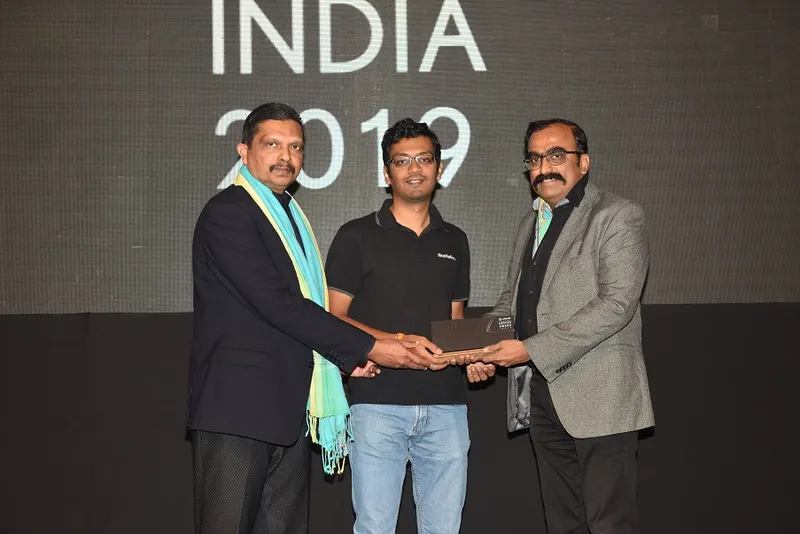
2. Textile Design
This category includes textiles for use by the apparel industry, home furnishing industry, and other allied business that use textiles as an integral part of a product experience. The finalists were Tuni Traditional Textiles Meet Modern Art, Urban Ladder Textile Collection (by Urban Ladder), Toile Indienne Textile Collection, Tangaliya Weaves (by Chetan Chhiller), Blue Poetry (upcycled textile waste, by Paiwand Studio), and Amaze Range of Block Printed Textiles (by Ayush Kasliwal Design).
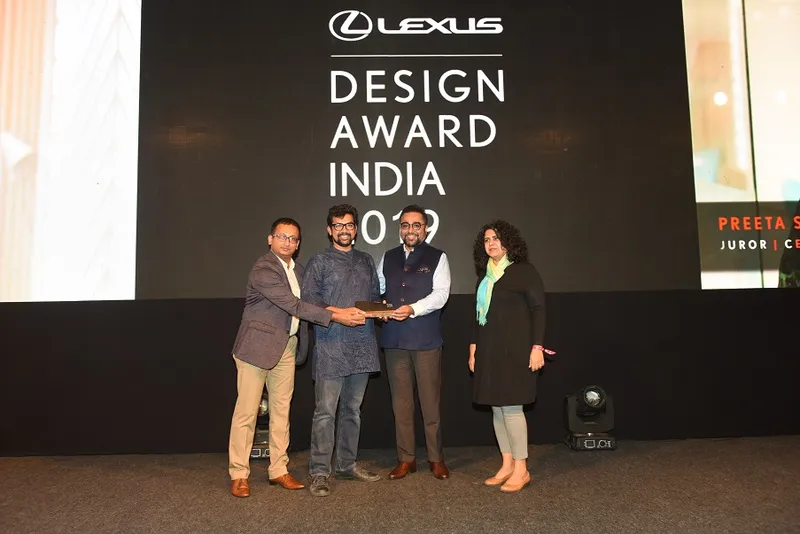
3. Lifestyle accessories
This includes jewellery, personal accessories, bags, luggage, footwear, clothing, lighting, and interior objects. Finalists were Tuni Traditional Textiles Meet Modern Art, For The Love of Bombay (apparel collection by Prasad Ramamurthy), Mettis (toe rings with fitness trackers, by Titan), FlipSlide (shoe with interchangeable heels, by Design Directions), Padmaavat (22K gold jewellery, by Titan), and South Indian Breakfast Set (by Foley Designs).
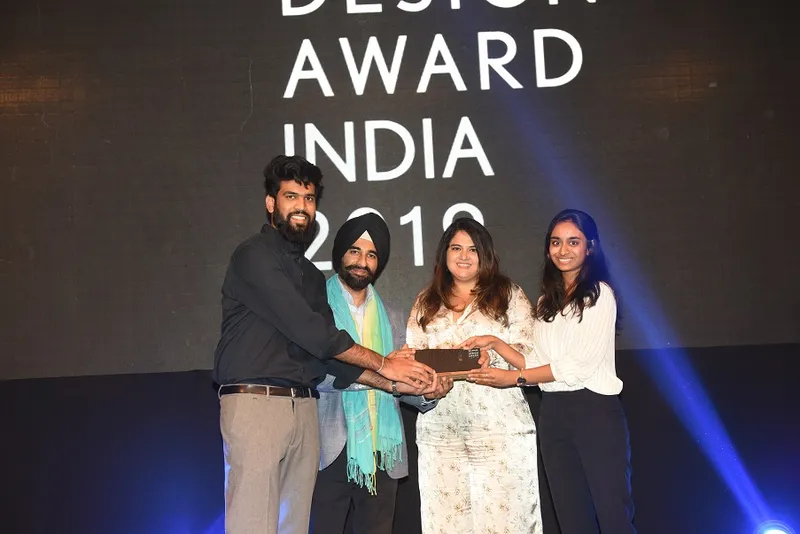
4. Furniture design
This includes furniture and products intended for use in residential or commercial interiors such as seating systems, office systems, home furniture and lighting. Custom-built retail interior design that is location-specific and intended as a one-off were not considered. Many submissions this year reflected the need for sustainability and conscious consumption.
Finalists were Solli Furniture Collection (by Sohel Contractor), Urban Ladder Furniture Collection, Moh (tray side table, by Amazng Furniture), Drape (metal light installation, by Vibhor Sogani), and Sliver Public Chair (public seating for Indian conditions, by Foley Designs).
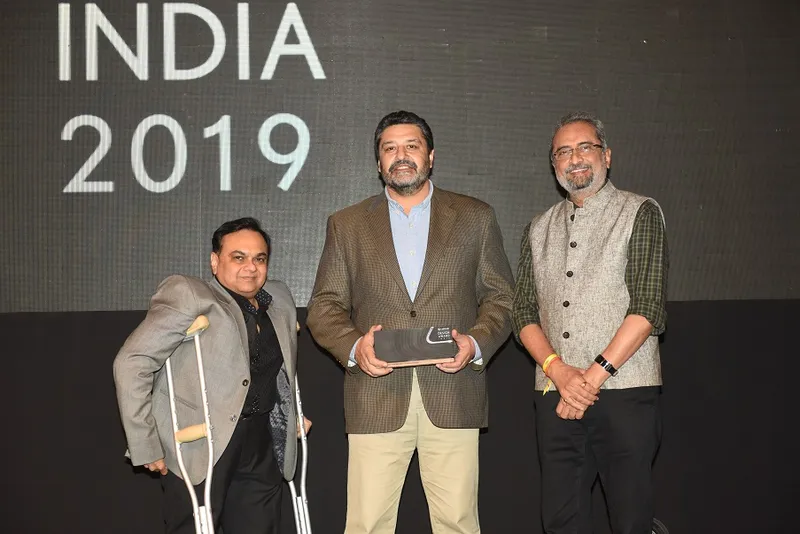
5. Design thinking
Design thinking is the application of ideas and methodologies in areas that might traditionally considered as ‘non-design’ domains. It has been used by CEOs, social scientists, economists, and educators.
Finalists were Improving Living Conditions of Salt Pan Labourers (by Anshuman Kumar), Brand Transformation of Ishanya Mall (by Idiom Design), Connected Healthcare at Home (by Designit), LETS (Learn English Through Stories, by Alka Hingorani), Design for Change (taking it to schools worldwide, by Kiran Bir Sethi), and Malai (coconut-based ahimsa leather, by Malai Biomaterials Design).
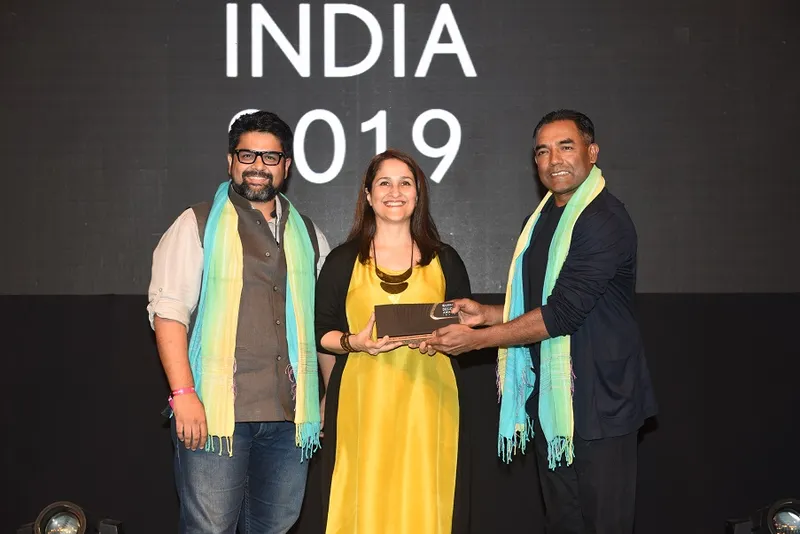
6. Packaging
The award for packaging design considers packaging designs that involve structural designs, surface graphic designs, and environmental impact. Finalists were Pluspack (user-centric secondary pack for medicines, by Dr Reddy's), Hillcart Tales (branding and packaging for premium tea, by Lemon Design), Too Yumm (self-standing foxnut pouch, by Elephant Design), Savlon Braille Bottles (disabled-friendly packaging, by Ogilvy & Mather), and Don't hide it (packaging for sanitary napkins, by NH One Design Communications).
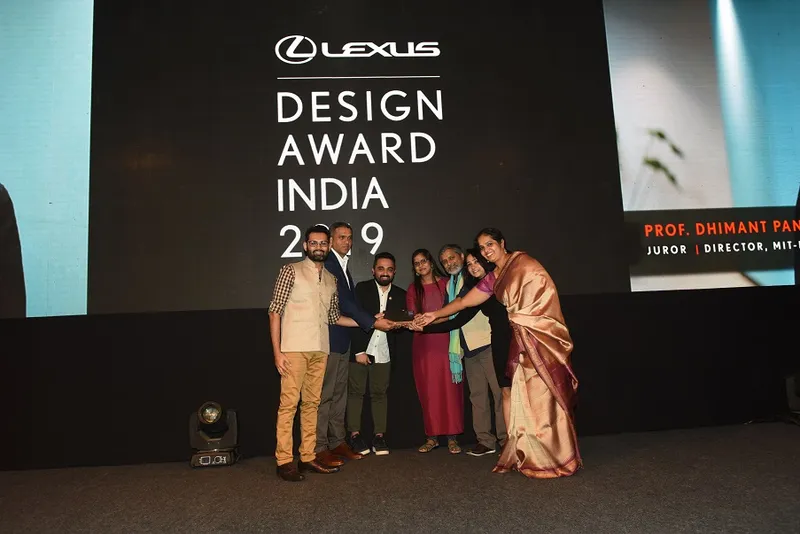
7. Craft design
This award acknowledges designers who work with craftspeople and crafts collectives to help create products and services, improve their skills and design abilities, and open up new sources of income for them. Finalists were Shunya Lamp (hand-beaten mathar metal craft, by Mangrove Collective), Mannat (wood and metal home Bidar décor, by Studio ABD), Promenade Pushkar (fashion from upcycled waste, by Shivam International), Indigo (innovation for Bandhani fabrics, by Adil Khatri), Tuni Traditional Textiles Meet Modern Art, and Kalpavriksha (palm leaf and coir craft, by Knot Studio).
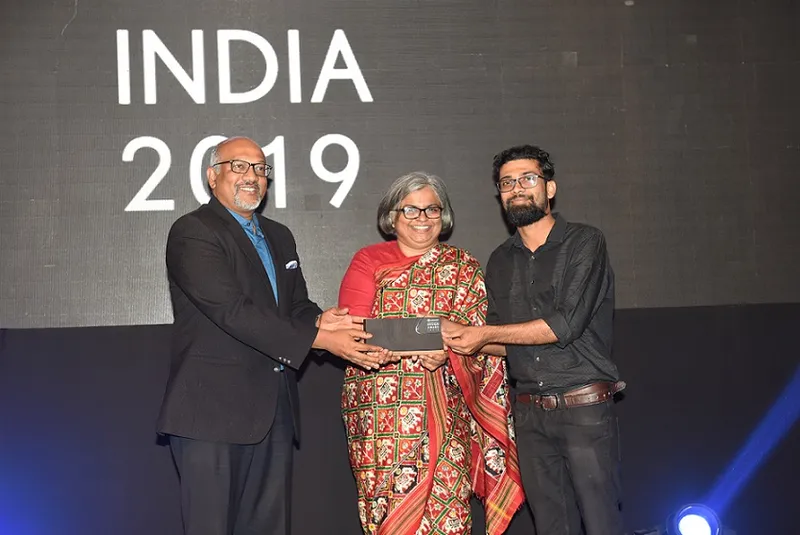
8. Public utility
This award recognises products and systems that are designed with a human-centred approach for use by everybody in the social pyramid, especially the underprivileged. This category does not use commercial success as a judging criterion.
Finalists are Airbox Toilets (modular designs for public toilets, by Jugal Mistri Architecture), Sliver Public Chair (public seating for Indian conditions, by Foley Designs), Excel ORCOmin (electrically-powered composting device, by Excel Industries), Smart City: Healthy Aundh, Pune (by Prasanna Desai Architects), and Folding Foropter (low-cost ophthalmological equipment, by LV Prasad Eye Institute).
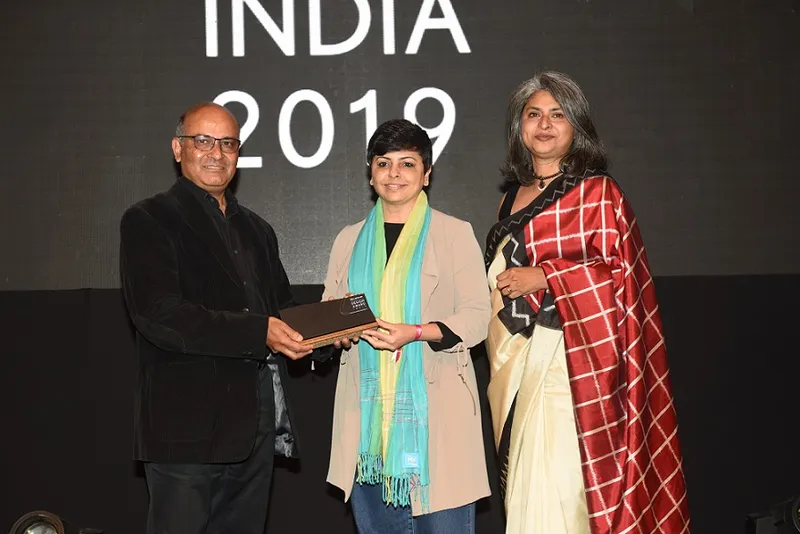
9. Design for social impact
This award considers the social impact of designers’ work in a broader societal context, from poverty alleviation to healthcare and livelihoods. Finalists include Folding Foropter (low-cost ophthalmological equipment, by LV Prasad Eye Institute), Usense (low-cost test for urinary tract infections, by Module Innovations), NeoMotion wheelchair (by NeoMotion Assistive Solutions), Savlon Chalksticks (soap-infused chalk sticks, by Ogilvy & Mather), Commitment to Kashmir (bringing designers and craftspeople together), and Design for Change (taking it to schools worldwide, by Kiran Bir Sethi).
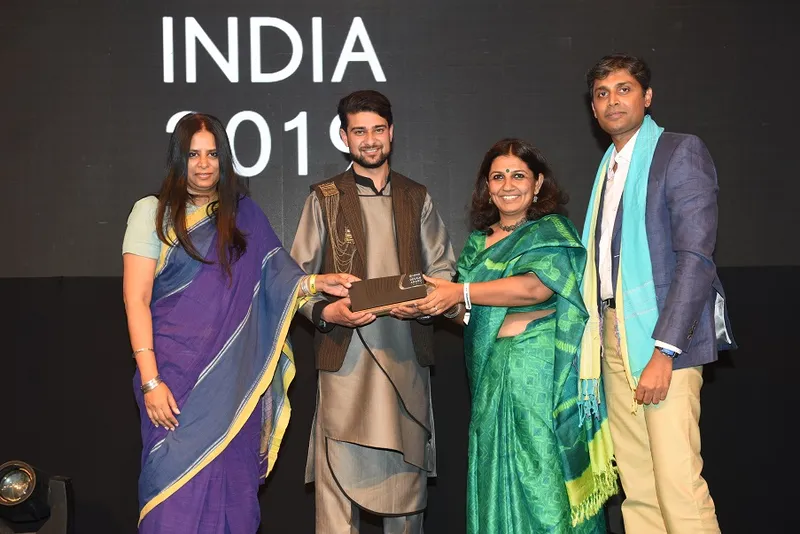
10. Business impact of designs
Apart from creating products and services that are useful, delightful and beautiful, designs also have the power to be a major growth driver for business. This award category recognises individuals or agencies that have significantly impacted a company’s growth in terms of top-line, bottom-line or brand image through their effort.
Finalists were Design of CNC Machines (by Dhimant Panchal), Creaticity (repositioning of Ishanya Mall, Pune, by Idiom Design), Hillcart Tales (branding and packaging for premium tea, by Lemon Design), Connected Healthcare at Home (by Designit), and Nadi Tarangini (medical equipment for Ayurvedic Doctors, by Design Directions).
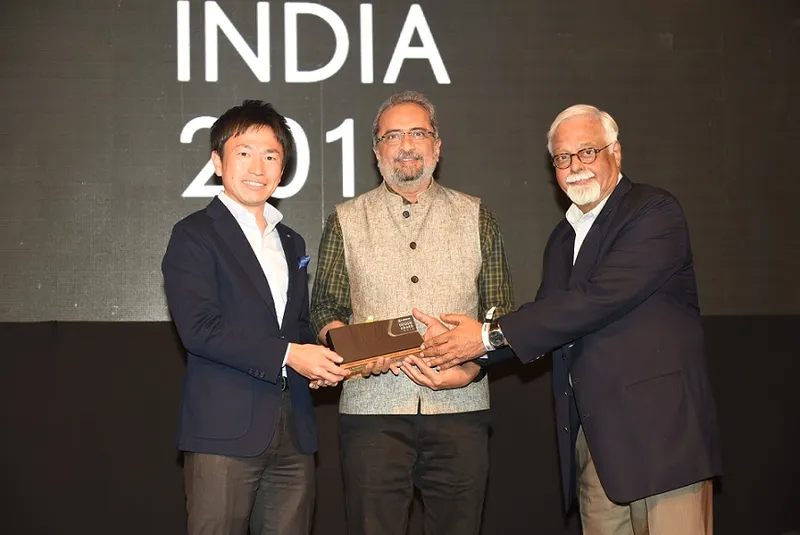
11. Student category
This award was open to students enrolled in design schools across India, with industrial designs, concepts and explorations. Submissions had to embody the values of innovation, sustainability, usability, aesthetic refinement and industrial craftsmanship.
Finalists were Altira (ergonomic dumbbells, by Crassant Dmello), Pabloo (public toilet and shower, by Vinod Thomas), Defeating Deafness (assistive tech for the hearing impaired, by Athul Dinesh), Jolly Kids Furniture (by Shiva Ghosh), UniCast (resizable cast for healing fractures, by Manu Prasad), Little Fawn (collapsible bamboo bicycle, by Tirtha Mandal), Tactile Labels for Inclusive Garments (by Sourabh Arun Chopade), Claero (organic car air-purifier, by Aditya Rao), The Ripple (furniture made from old tyres, by Karan Kalpak Bhave), Iris (assistive device for the visually impaired, by Mani Tejla Lingala), Yahi'or (water bottle lighting device combo, by Swapnil Soni), Monarch (foldable bamboo helmet, by Christopher Richard), and InCrease (induction-heated clothes iron, by Anumeha Patoria).
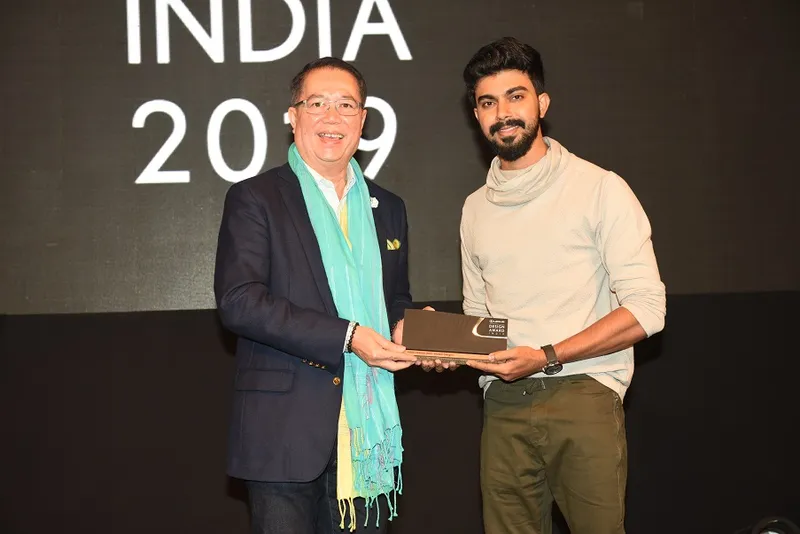
12. Open category
This category considers original, conceptual work. Finalists were Vertical Wall Garden System (by Foley Designs), Anima (multisensory wearable device, by Akash Sulania), Dripo (wireless infusion monitor, by Evelabs technologies), Shaft (safety tail light for cyclists, by Nabeel Quadri), Cane-based Prosthetic Legs (by Rise Design Labs), CleaneRAT (sewer maintenance robot, by IISc Bangalore), Riku (AI-based cooking appliance, by Futuristic Labs), Solar Cooker for Urban Homes (by Anshuman Gupta), Kol Katha (digitally-printed traditional sarees, by Surojit Majhi), Neera (rainwater harvesting system, by Sneha Shekhar), and Zuci (wearable vacuum cleaner, by Lucid Design India).
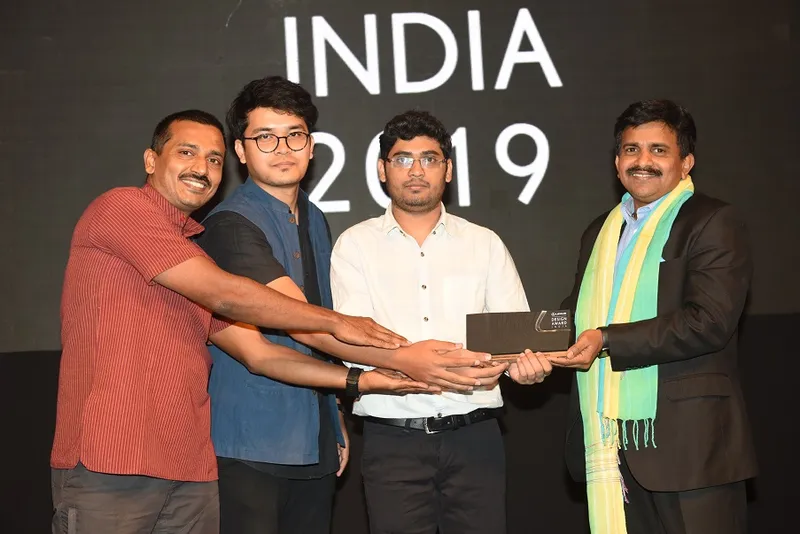
The jury’s choice award went to Design Directions as a special mention. The 2019 winning works will be promoted at the Lexus Guest Experience Centres. Winners of the Open and Student categories are invited to the Lexus Event at Milan Design Week 2019.
“We brought the Lexus Awards to India in 2018 because India possesses an incredible depth of talent, and we wanted to give these designers an opportunity to exhibit their skills,” said P.B. Venugopal, President, Lexus India.
“The range of entries and the sheer imagination, skill and focus evident in each one of them has been impressive. We are excited about the future of design in India and are committed to helping expand the country’s capabilities,” he added.
“The Lexus Award India is our way of ensuring that the legacy is carried forward by a new generation of designers,” summed up N Raja, Chairman, Lexus India.







